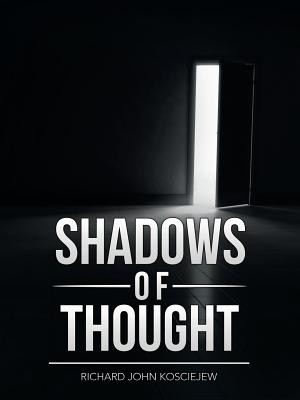
- We will send in 10–14 business days.
- Author: Richard John Kosciejew
- Publisher: AuthorHouse
- Year: 2018
- Pages: 624
- ISBN-10: 1546237054
- ISBN-13: 9781546237051
- Format: 21 x 27.9 x 3.2 cm, softcover
- Language: English
- SAVE -10% with code: EXTRA
Reviews
Description
Any of the existing classifications can usefully be supplemented by thinking about the functional differences or similarities revealed by the visual possibility of a frame of reference in terms of the distinction between nonconceptual and conceptual content. Of course, there are no dependence relations between concept possession and states with nonconceptual content. As a satisfactory theory of nonconceptual content must be able to provide an account of the conditions, under which it is appropriate and warranted to ascribe states with nonconceptual content, particularly of the evidence that might otherwise have been provided by language use. Some philosophers would resist that perceptual experience has nonconceptual content. It might be argued that the content of perception is exhausted by dispositions to acquire beliefs. The idea is that there is no more to perceptual content than can be given by perceptual beliefs or dispositions. To acquire such beliefs is only plausible if the notion of belief and of content possession are weakened so far that they effectively come into the domain of nonconceptual content. Broadly speaking, the idea is that if a subject is to be properly credited with mastery of the concepts in the thought (a being F), then that subject must be capable of thinking (a being G) for any property (G) of which he has a conception and similarly of thinking (b is F) for any object is that which he has a conception.
EXTRA 10 % discount with code: EXTRA
The promotion ends in 19d.22:58:30
The discount code is valid when purchasing from 10 €. Discounts do not stack.
- Author: Richard John Kosciejew
- Publisher: AuthorHouse
- Year: 2018
- Pages: 624
- ISBN-10: 1546237054
- ISBN-13: 9781546237051
- Format: 21 x 27.9 x 3.2 cm, softcover
- Language: English English
Any of the existing classifications can usefully be supplemented by thinking about the functional differences or similarities revealed by the visual possibility of a frame of reference in terms of the distinction between nonconceptual and conceptual content. Of course, there are no dependence relations between concept possession and states with nonconceptual content. As a satisfactory theory of nonconceptual content must be able to provide an account of the conditions, under which it is appropriate and warranted to ascribe states with nonconceptual content, particularly of the evidence that might otherwise have been provided by language use. Some philosophers would resist that perceptual experience has nonconceptual content. It might be argued that the content of perception is exhausted by dispositions to acquire beliefs. The idea is that there is no more to perceptual content than can be given by perceptual beliefs or dispositions. To acquire such beliefs is only plausible if the notion of belief and of content possession are weakened so far that they effectively come into the domain of nonconceptual content. Broadly speaking, the idea is that if a subject is to be properly credited with mastery of the concepts in the thought (a being F), then that subject must be capable of thinking (a being G) for any property (G) of which he has a conception and similarly of thinking (b is F) for any object is that which he has a conception.


Reviews